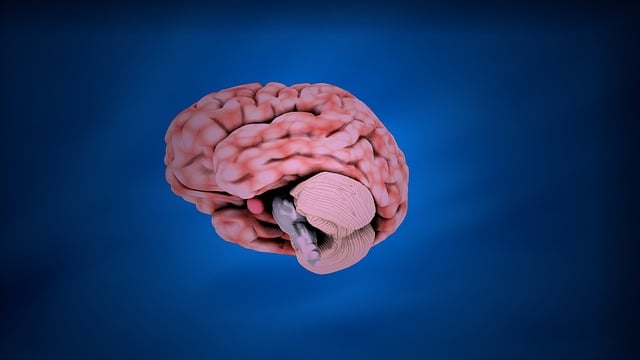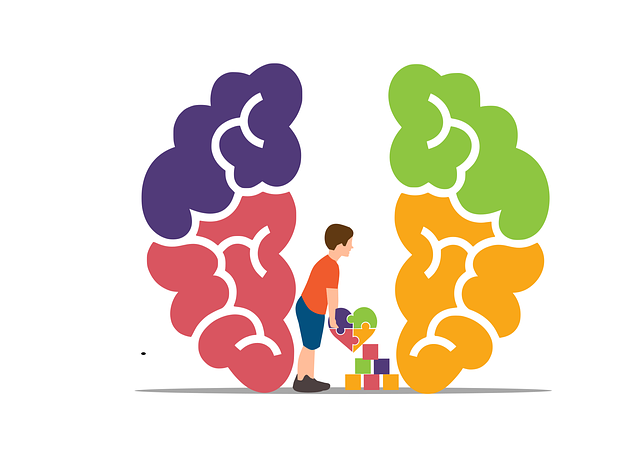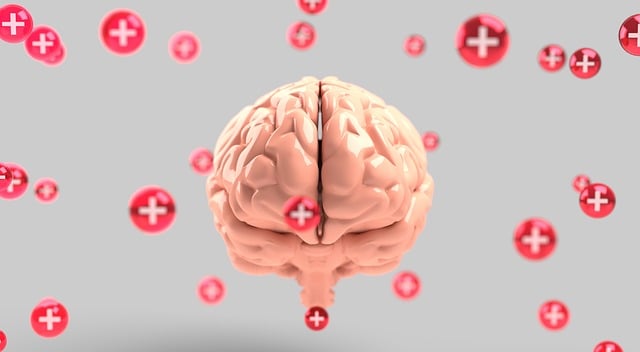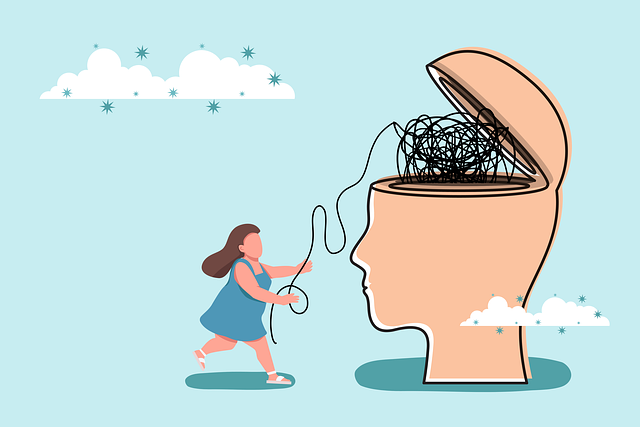Highlands Ranch Abuse Survivors Therapy (HRAST) emphasizes the importance of understanding and preventing depression through mental health awareness. Early recognition of symptoms like sadness, loss of interest, appetite changes, fatigue, concentration issues, and suicidal thoughts is crucial. Building a robust support network, incorporating mindfulness and self-care practices, adopting healthy lifestyle choices, and seeking professional help through therapies like CBT are key strategies in depression prevention and recovery for trauma survivors, enhancing overall community well-being.
Depression is a prevalent condition affecting millions, but with proactive strategies, prevention and recovery are achievable. This comprehensive guide explores various approaches to combat depression, from understanding its insidious signs and symptoms to cultivating a robust support network. We delve into evidence-based practices like mindfulness and self-care, emphasizing their role in fostering resilience. Additionally, we discuss the transformative power of therapy, highlighting options tailored for Highlands Ranch Abuse Survivors, offering hope and lasting solutions.
- Understanding Depression: Recognizing Signs and Symptoms
- Building a Support Network: The Power of Connection
- Mindfulness and Self-Care Practices for Daily Resilience
- Healthy Lifestyle Choices to Bolster Mental Well-being
- Professional Help and Therapy Options for Long-term Management
Understanding Depression: Recognizing Signs and Symptoms

Understanding Depression is a crucial step in preventing it. According to experts from Highlands Ranch Abuse Survivors Therapy, depression goes beyond feeling sad or blue for a few days. It’s a persistent condition characterized by prolonged feelings of sadness, loss of interest in activities once enjoyed, changes in appetite and sleep patterns, fatigue, difficulty concentrating, and even recurrent thoughts of death or suicide. Recognizing these signs early is vital for effective Depression Prevention strategies.
Highlands Ranch Abuse Survivors Therapy also emphasizes the importance of Mental Health Awareness. Individuals experiencing depression may exhibit various symptoms, including irritability, guilt, hopelessness, and indecisiveness. If left unaddressed, depression can escalate into a crisis, necessitating Crisis Intervention Guidance. Therefore, being attuned to these signs and seeking support from professionals in Highlands Ranch or elsewhere is key to ensuring timely intervention and fostering a healthier mental landscape.
Building a Support Network: The Power of Connection

Building a strong support network is a powerful tool in preventing depression and fostering resilience, especially for those who have experienced trauma or abuse, like many Highland Ranch Abuse Survivors Therapy clients. Human connection is an essential aspect of mental well-being, and surrounding oneself with a compassionate community can make a significant difference. This could include reaching out to friends, family, or even joining support groups where individuals share similar experiences, providing a sense of belonging and understanding.
The benefits of such connections extend beyond emotional support; they also offer opportunities for learning effective conflict resolution techniques and stress reduction methods, which are crucial in managing potential triggers for depression. Trauma Support Services play a vital role here, as they can guide individuals in navigating their past while building healthy relationships, ultimately empowering them to cope with challenges more effectively.
Mindfulness and Self-Care Practices for Daily Resilience

Incorporating mindfulness and self-care practices into daily routines can significantly enhance resilience against depression. Techniques like meditation, deep breathing exercises, and yoga promote a sense of calm and groundedness, helping individuals to better manage stress and negative emotions. For those who may be recovering from trauma, such as abuse survivors seeking therapy in Highlands Ranch, these practices offer valuable tools for emotional regulation. By cultivating present-moment awareness, individuals can learn to observe their thoughts and feelings without judgment, fostering a deeper understanding of themselves and their triggers.
Community outreach programs focused on mental wellness coaching can further support this process. Developing and implementing programs that teach stress reduction methods tailored to individual needs can create a powerful network of support. These initiatives may include group therapy sessions, workshops on self-care routines, or even online resources designed to promote mental wellness. Such efforts not only empower individuals but also contribute to the overall well-being of the community, as seen in successful implementations of Community Outreach Program Implementations that prioritize stress reduction and Mental Wellness Coaching Programs Development.
Healthy Lifestyle Choices to Bolster Mental Well-being

Adopting healthy lifestyle choices is a powerful tool for bolstering mental well-being and preventing depression. In Highlands Ranch Abuse Survivors Therapy, professionals emphasize the profound impact of self-care on emotional resilience. Regular exercise releases endorphins, reduces stress hormones, and improves mood, making it an essential component of any preventive strategy. A balanced diet, rich in nutrients like omega-3 fatty acids and vitamins B and D, supports brain health and can enhance coping skills development. Adequate sleep is crucial for emotional regulation and cognitive function, allowing individuals to better navigate challenges and practice mindfulness meditation effectively.
In addition to these, learning and practicing coping skills development techniques such as mindfulness meditation, deep breathing exercises, and conflict resolution techniques can significantly reduce stress and anxiety levels. These tools empower individuals to respond rather than react to difficult situations, fostering a greater sense of calm and control. By integrating these healthy habits into daily routines, individuals in Highlands Ranch can strengthen their mental defenses, promote overall well-being, and mitigate the risk of depression.
Professional Help and Therapy Options for Long-term Management

For long-term management of depression, professional help and therapy remain indispensable tools. Seeking support from a licensed therapist or counsellor is crucial for individuals dealing with depressive disorders, especially those who have experienced trauma or abuse, such as survivors in Highlands Ranch. Therapies like cognitive behavioural therapy (CBT) are effective in identifying and changing negative thought patterns while teaching coping strategies. This tailored approach not only addresses the symptoms of depression but also fosters inner strength development by empowering individuals to manage their mental health proactively.
In addition to individual therapy, group sessions can be beneficial for building a support network and enhancing self-awareness exercises. For healthcare providers at risk of burnout, incorporating these prevention strategies is vital. By engaging in regular therapy and adopting self-care practices, professionals can maintain emotional resilience and better serve their patients. This holistic approach to mental health management ensures sustained well-being, even in the face of challenging circumstances.
Preventing depression involves a multi-faceted approach, from cultivating a strong support network to adopting healthy lifestyle choices. As previously mentioned, regular mindfulness practices and self-care can significantly enhance mental resilience. For those who have experienced trauma, such as abuse survivors in Highlands Ranch, seeking professional help through therapy options like those offered by local centers specializing in abuse survivors’ care is crucial for long-term management. By combining these strategies, individuals can navigate life’s challenges more effectively and maintain optimal mental well-being.














